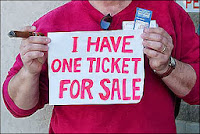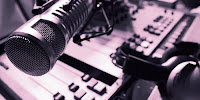Record labels are not intrinsically bad, it’s just that you have to weigh the advantages versus the disadvantages to determine whether the time is right for you to be associated with one or not.
You might want to consider a label if:
- It's offering you a staggering amount of money. If this happens, either you must be hot enough for a bidding war to have broken out, or they really, really believe in your future. Just remember that this might be the last money you’ll ever see from the label, and it may have a significantly negative impact on any credibility that you have with your fan base. Best to test the notion of signing with a label with your tribe just to see their reaction first, since they won’t buy anything from you if they feel you sold them out.
- You need money for recording, touring, or any other needs. One of the things that labels do really well is to act like a bank by using your music as collateral. Major labels still do this as skillfully as ever before, but you have to ask yourself if it's worth the price you’re going to pay in terms of the freedom that DIY offers.
- You’re spending too much time on certain aspects of a career. A label can take some of the burden of marketing and distribution off your shoulders. You still have to be involved on some level, though, or you run the risk of things getting way off course before it’s brought to your attention. If you don’t have a manager already, that might be a better association to make at this point than to start working with a label.
- You need expanded distribution. If distribution into brick-and-mortar stores is beyond what a small indie label can provide, a major label can be your friend. They have the relationships, the sales force, and the means to collect the money. If you’re distributing by yourself, you’ll get paid if and when the stores feel like it because you have no clout. In some cases, you won’t even be able to get into the remaining chains and retail stores because you don’t sell enough to get on their radar. A major label or large indie sells the stores a lot of product and they’re trusted, so it’s a lot easier for them to get the retailer to take a chance. Further, the label has some leverage in that they can always threaten to withhold in-demand product if they don’t get paid.
- You want to expand into foreign territories. Let’s say that you have a huge following in Germany via your online efforts, but you can’t service them properly because you live in Kansas City. A major label can use their overseas resources to promote you and get product in the stores there. It saves you the hassle of reinventing the distribution and marketing wheels.
- You need economies of scale. Sometimes the power of a big label can be used to your advantage since they can cut a better deal with a service (YouTube and MTV come to mind) than you ever could as an indie.
- You need major marketing. Another thing that a major label does well is to market you traditionally. If you want airplay on radio and appearances on television, a label may be your only hope. If you want reviews and articles in mainstream media, they still have the clout to get it done.
- If you feel that you’ve gone as far as you can go as an indie artist. If you need help to push your career over the edge to stardom, then a major label or major label imprint may be the way to go. This is what they do—sometimes well, sometimes not.
There are times when a label makes a lot of sense for an artist, especially when he or she doesn't want the burden of running the business of DIY. Unfortunately, being an artist requires more hands-on participation in marketing than ever before, so there's only so much that you can escape. Still, if you want to go to the next level as an artist, an association with an artist can still be the best way to go.
----------------------------------
Help support this blog. Any purchases made through our Amazon links help support this website with no cost to you.
Follow me on Forbes for some insights on the new music business.
You should follow me on Twitter and Facebook for daily news and updates on production and the music business.
You should follow me on Twitter and Facebook for daily news and updates on production and the music business.
Check out my Big Picture blog for discussion on common music, engineering and production tips and tricks.











